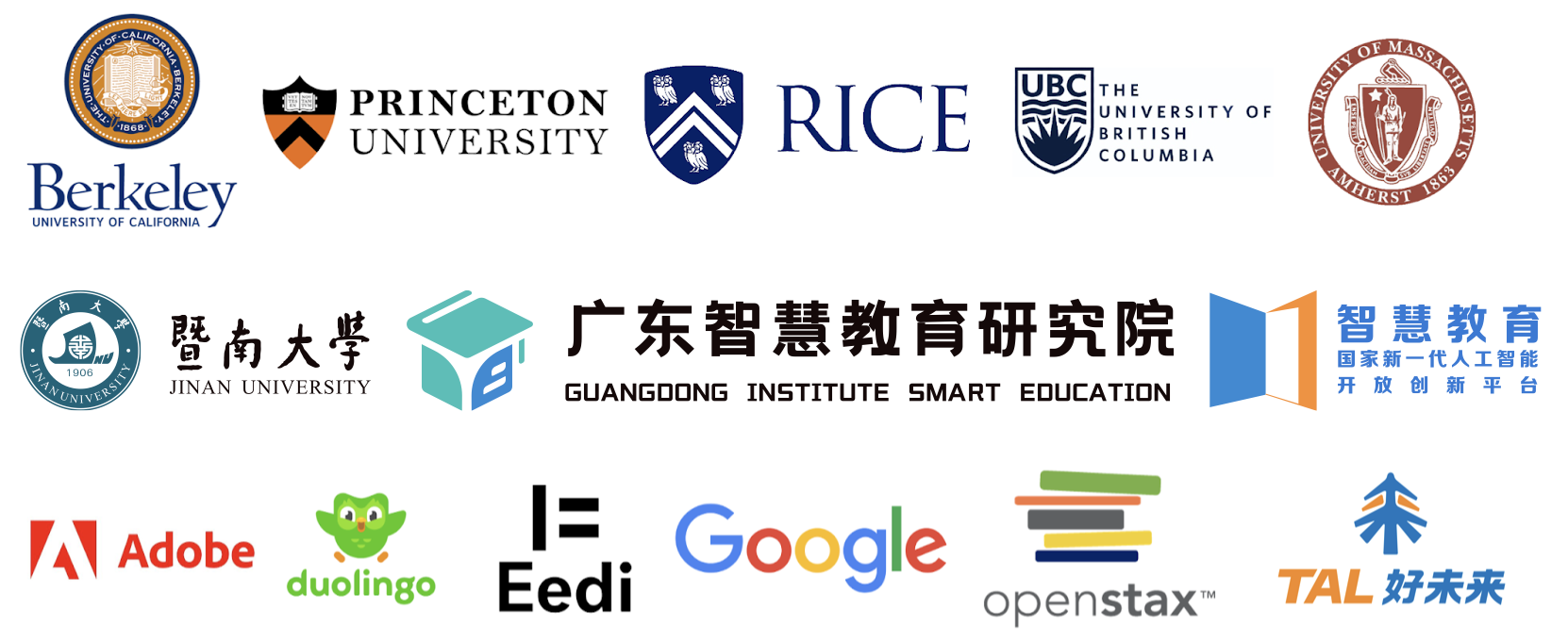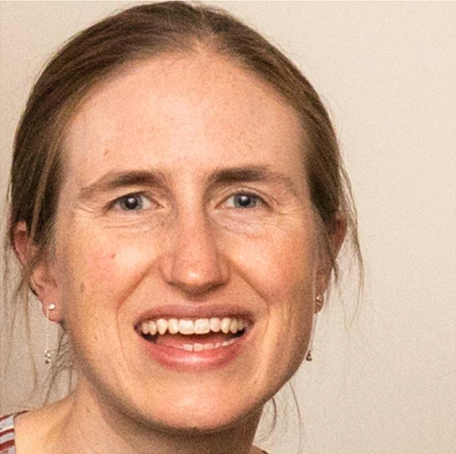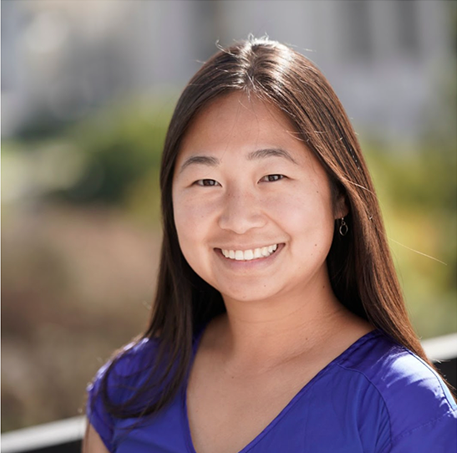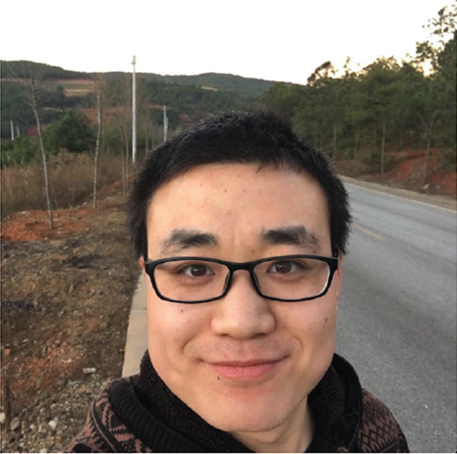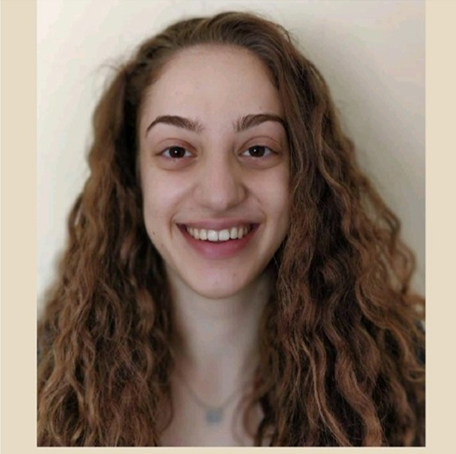AAAI2024 Workshop on AI for Education - Bridging Innovation and Responsibility
Workshop Overview
This two-day in-person workshop explores the innovations in artificial intelligence (AI), specifically generative-AI (GenAI), in educational applications, and discusses the related ethical implications of responsible-AI (RAI). Over two days, attendees will examine GenAI technologies, potential vulnerabilities, and the development of RAI standards in an educational context. Through a variety of formats like papers, demonstrations, posters, a global competition on Math reasoning, and opportunities to hear experts and representatives from various communities, participants will explore AI’s impact on instruction quality, learner outcomes, and ethics. This workshop ultimately aims to inspire novel ideas, foster partnerships, and navigate the ethical complexities of AI in education.
Date: February 26-27, 2024
Location: Vancouver Convention Center, Vancouver, Canada
Schedule
Our 2-day workshop will focus on both AI Innovation (day 1) and Responsible AI (day 2). The detailed workshop schedule can be found at:
-
Day 1, February 26, 2024. AI Innovation. https://ai4ed.cc/workshops/aaai2024day1
-
Day 2, February 27, 2024. Responsible AI. https://ai4ed.cc/workshops/aaai2024day2
Proceedings now available on PMLR!
Topics of interest
Day 1. Cognitive and learning science principles for improving genAI-based learning frameworks and tutoring systems; Mitigating “hallucinations” in large language models (LLMs) and improving factual validity for education; Improving mathematical and scientific reasoning capabilities of LLMs; Methods and metrics for evaluating GenAI content; AI-based methods to evaluate students, monitor their progress and personalize their education; Analyses, studies, and solutions for preserving academic integrity in the abundance of GenAI models and generated educational content; Benchmark datasets for genAI applications in education; Next generation infrastructure to support research on GenAI for education
Day 2. Responsible AI (RAI; e.g., Fairness, Accountability, Interpretability, and Transparency) for consequential decision-making in education (e.g. admissions, early warning systems, grading); Methodological contributions and impact of responsible AI in education, including and not restricted to generative modeling, predictive modeling, causal inference, reinforcement learning, and data collection; AI for better student outcomes: applications that use AI to enhance educational interventions under resource constraints and inequity; Privacy, security, and AI Regulation in education equity, pipelines, and representation; surveillance; platform governance; regulating large/foundation models in education settings; Social and cultural impacts of AI in education; historical perspectives and critical theory
Format of Workshop
We have a two-day workshop with distinct themes and events on each day. Day 1 will focus on innovations in AI for education specifically highlighting GenAI and a variety of different events including keynotes, invited presentations/posters/demos, a debate all with representation from research and allied communities, and finally, a global challenge on math reasoning. Day 2 will highlight topics on responsibility in AI for education with a keynote, a stellar lineup of invited speakers, a moderated discussion session, expert panels highlighting critical issues in responsible AI, spotlight talks, and a poster session to highlight accepted papers. Participants will be encouraged to think critically, ask questions, identify edge cases for demos, and come together to brainstorm solutions.
Register for Workshop
Please register for the workshop here.
If you need an invitation letter, then please follow the instructions on the AAAI website:
Letters of invitation for visa application purposes are available through your registration confirmation email. Please follow the instructions in your confirmation email to apply for a visa letter and receive the necessary documentation for a Canadian visa.
Getting your submission camera-ready
Thank you all for submitting your work to the AI4Ed Workshop at AAAI, 2024! Camera-ready versions are due on February 15, 2024, by 11:59 PM ET.
If you missed adding anyone to the manuscript during submission last year, please make sure all co-authors have an OpenReview account and have been added to the camera-ready manuscript. All authorship and content must be final in the camera-ready version.
Irrespective of whether you submitted a short- or long-paper, you need to submit a cover letter addressing the reviewer comments as well as address the comments in your work. Here are the instructions for getting your submissions camera-ready.
All camera-ready versions will be submitted using the OpenReview portal for the workshop. On OpenReview, go to the author console, navigate to your paper, click edit, and camera-ready. Fill out the form, and upload the new version and the cover letter.
Short-papers
- Add a cover letter addressing reviews
- Concisely address reviews in short paper
- Short paper submissions should follow the AAAI style template
Full-papers
- Add a cover letter addressing reviews
- Can add up to two additional pages to the submission to effectively address the reviews.
- Full paper submissions must follow the PMLR style template.
- Authors can opt-in to submit their papers as part of the conference proceedings in PMLR. Learn more.
Posters
Poster submissions will be 30” x 40” and can be portrait or landscape orientation. Posters can be set up on the day of the workshop starting at 8.30 am. Poster session times
- Day 1: 10.30 am - 11 am (during break), 11.45 am to 12.30 pm, 3.30 pm - 4.00 pm (during break)
- Day 2: Poster spotlights (10.15 am - 10.30 am), 10.30 am - 11 am (during break), 3.30 pm - 4.00 pm (during break)
Talks
All slide presentations must be uploaded to the google folder by February 20, 2024. Upload your presentations to the folder based on your day of presentation. Please use the following convention for the presentation filename: presenter-lastname_submission-title.
Conference proceedings
- Accepted full papers will be invited to submit an extended version, addressing the remarks of the reviewers, to PMLR (https://proceedings.mlr.press/) to be published as part of the Workshop Proceedings. If authors would like to opt-out of the proceedings, they should email the organizers at [email protected] by 02/15/2024.
- The authors must submit separate PDF files for the paper. Full paper submissions must follow the PMLR style template. It is similar to that of JMLR, but the header must be “Proceedings of Machine Learning Research” instead of “Journal of Machine Learning Research”
- Acceptance to the proceedings is contingent upon adequately addressing the reviews in the camera-ready version which will undergo editorial review.
Call for Submissions
We welcome different kinds of submissions:
-
Short papers (2 pages + references). Demo papers, Work-in-progress papers. These submissions will be exhibited as posters or demonstrations.
-
Full papers (up to 6 pages + references). Novel research papers, Appraisal papers of existing methods and tools (e.g., lessons learned), Benchmark datasets highlighting the application of GenAI, Evaluatory papers that revisit the validity of domain assumptions
Full paper submissions must follow the PMLR style template. Update: Short paper submissions should follow the AAAI style template.
Accepted full papers will be invited to submit an extended version, addressing the remarks of the reviewers, to PMLR (https://proceedings.mlr.press/) to be published as part of the Workshop Proceedings.
Important Dates
- Submission opens: September 29, 2023
- Submission due: November 27, 2023, by 23:59 PM Eastern Time
- Final paper decision [Delayed]: December 13, 2023
- Camera-ready: February 15, 2024
- Workshop Dates: February 26-27, 2024
- Travel Scholarship applications due extended: December 18, 2023
- Travel scholarship announcements: December 15, 2023
Submission Process
All submissions must be made through the OpenReview portal for the workshop. Authors must have an OpenReview account to make submissions. Full paper submissions must follow the PMLR style template. Short paper submissions should follow the AAAI style template.
Posters
Posters are 30”x 40” and can be portrait or landscape orientation.
Camera-ready versions
Instructions coming soon.
Submission Guidelines
Workshop submissions are anonymous and must conform to the instructions (detailed below) for double-blind review. The authors must remove all author and affiliation information from their submission for review and may replace it with other information, such as paper number and keywords. Submissions may consist of up to 6 pages of technical content plus additional pages solely for references; acknowledgments should be omitted from papers submitted for review. Only PDF files are required at the time of submission for review; authors will additionally need to submit paper source files if their paper is accepted for publication.
> Access the OpenReview Submission Portal
Submission Limit per Author
Each author is limited to no more than a combined limit of 5 submissions to the AI4ED-AAAI24 workshop (including papers in the Innovation and Responsible AI tracks) and authors may not be added to papers following submission (see below for policies about author changes).
Guidelines for Changes to Titles/Authors after Submissions
MODIFICATIONS TO SUBMISSIONS ARE ONLY ALLOWED UNTIL SUBMISSION DEADLINE (November 23, 2023). No exceptions will be granted. Please see the full policy on Paper Modification Guidelines.
Policy Concerning Multiple Submissions to Conferences or Journals
This workshop will not consider any paper that, at the time of submission, is under review or has already been published or accepted for publication in any archival venue such as a journal or a conference (workshops and preprint servers such as arXiv are acceptable). Authors are free to retract a submission from a venue with a concurrent review process (e.g., from NeurIPS-23) and submit the same work to the AI4ED-AAAI24 workshop as a full paper, provided that this retraction occurs before the AI4ED-AAAI-24 submission. Authors must confirm at the time of submission that the paper is not under review at another archival conference or journal. Once they have submitted to the workshop, authors may not submit the same paper to another archival conference or journal until they receive an accept/reject decision from AI4ED-AAAI24 or they withdraw their submission from AI4ED-AAAI-24. In some cases, it may require a judgment call to determine whether two concurrent submissions constitute a violation of AAAI’s multiple submission policy. If a concern is raised about the similarity of two non-identical submissions, at least three people will inspect whatever information is available about both submissions. If they all agree that the simultaneous submission has excessive technical overlap, the paper will be summarily rejected and the organizers of the other conference will be informed about AAAI’s decision. As with all summary rejects, such decisions are final.
Citation and Comparison
Papers are expected to cite those refereed publications most relevant to their content, but authors are excused for not knowing about all non-refereed work (e.g, appearing on arXiv). Nevertheless, in cases where such prior work is widely known in the field, its existence may be considered by reviewers in assessing a submission’s novelty. Papers published less than two months before the regular paper submission deadline (November 23, 2023) are considered contemporaneous to all AAAI-24 submissions; authors are not obliged to address such papers (though, especially for the camera-ready versions of accepted papers, authors are encouraged to do so).
Reproducibility Guidelines
Authors must complete a reproducibility checklist at the time of paper submission, which outlines how to reproduce the results of the submission. These responses will become part of each paper submission and will be shared with reviewers. Information related to reproducing experimental results described in the submission may be included in the main paper or the Code and Data Appendix, as appropriate. Further technical details (proofs, descriptions of assumptions, algorithm pseudocode) may be included in the Technical Appendix. When appropriate, authors are encouraged to include detailed information about each reproducibility criterion as part of their Technical Appendix. Reviewers will be asked to assess the degree to which the results reported in a paper are reproducible, and this assessment will be weighed when making final decisions about each paper.
Ethics Policy
All AAAI authors and reviewers are required to honor the AAAI Publications Ethics and Malpractice Statement, as well as the AAAI Code of Professional Conduct. A paper may be rejected if an author is found to violate the AAAI Publications Ethics and Malpractice Statement or the AAAI Code of Professional Conduct. Demonstrations During paper submission, authors will be able to express interest in giving a public demo of the systems described in the paper. Based on these expressions of interest and reviews, papers will be selected to participate in a demonstration session, which will happen in addition to technical talks and posters.
Global Challenge on Math Problem Solving and Reasoning
We invite researchers and practitioners worldwide to investigate the opportunities of automatically solving math problems via LLM approaches. More details about this competition can be found at https://ai4ed.cc/competitions/aaai2024competition.
Invited Speakers and Panelists

Hortenius I. Chenault Endowed Associate Professor & Director, Culturally Relevant Computer Lab, Morehouse College

Canada Research Chair in NLP and ML, Associate Professor in the School of Information and Department of Linguistics, and Computer Science, University of British Columbia

Professor in Responsible AI and the Scientific Director of WASP-HS (Humanities and Society), Umea University
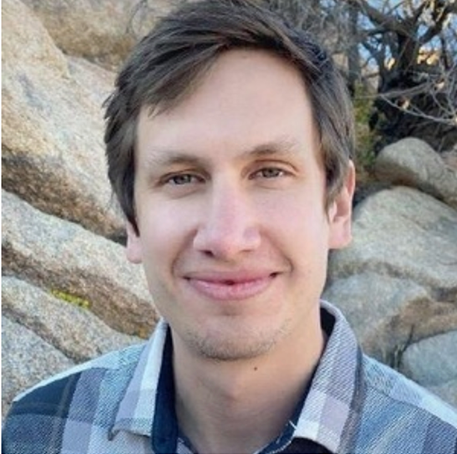
Senior Assessment Scientist, Duolingo

Principal Research Director in Foundational Psychometrics and Statistics Research Center,
ETS

Assistant Professor of Learning Analytics and Educational Data Mining,
Columbia University
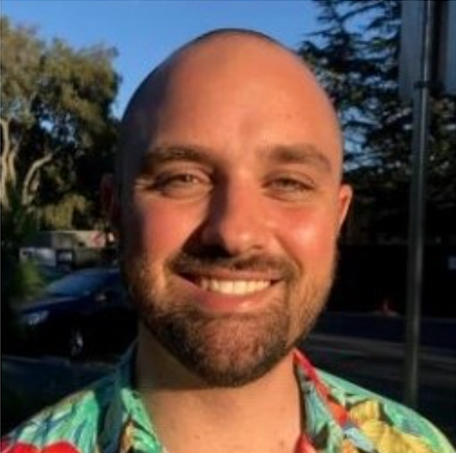
Assistant Professor of Sociology and Data Science,
University of Florida
Travel Scholarship
We are pleased to announce travel scholarships to the AAAI 2024 conference and attendance at the AI in Education: Bridging Innovation and Responsibility workshop. These scholarships are intended to broaden participation in the conference and the workshop, with a focus on reaching underserved and underrepresented undergraduate and graduate students as well as postdocs in the machine learning and AI domain. Each award is valued at $2000 CAD and is intended to cover travel, accommodation, and registration fees. We look forward to your applications and hope to see you in Vancouver, Canada, in February 2024.
Workshop Steering Committee
Subcommittee Leads
Program Committee and Proceedings
Mathematical Reasoning Competition
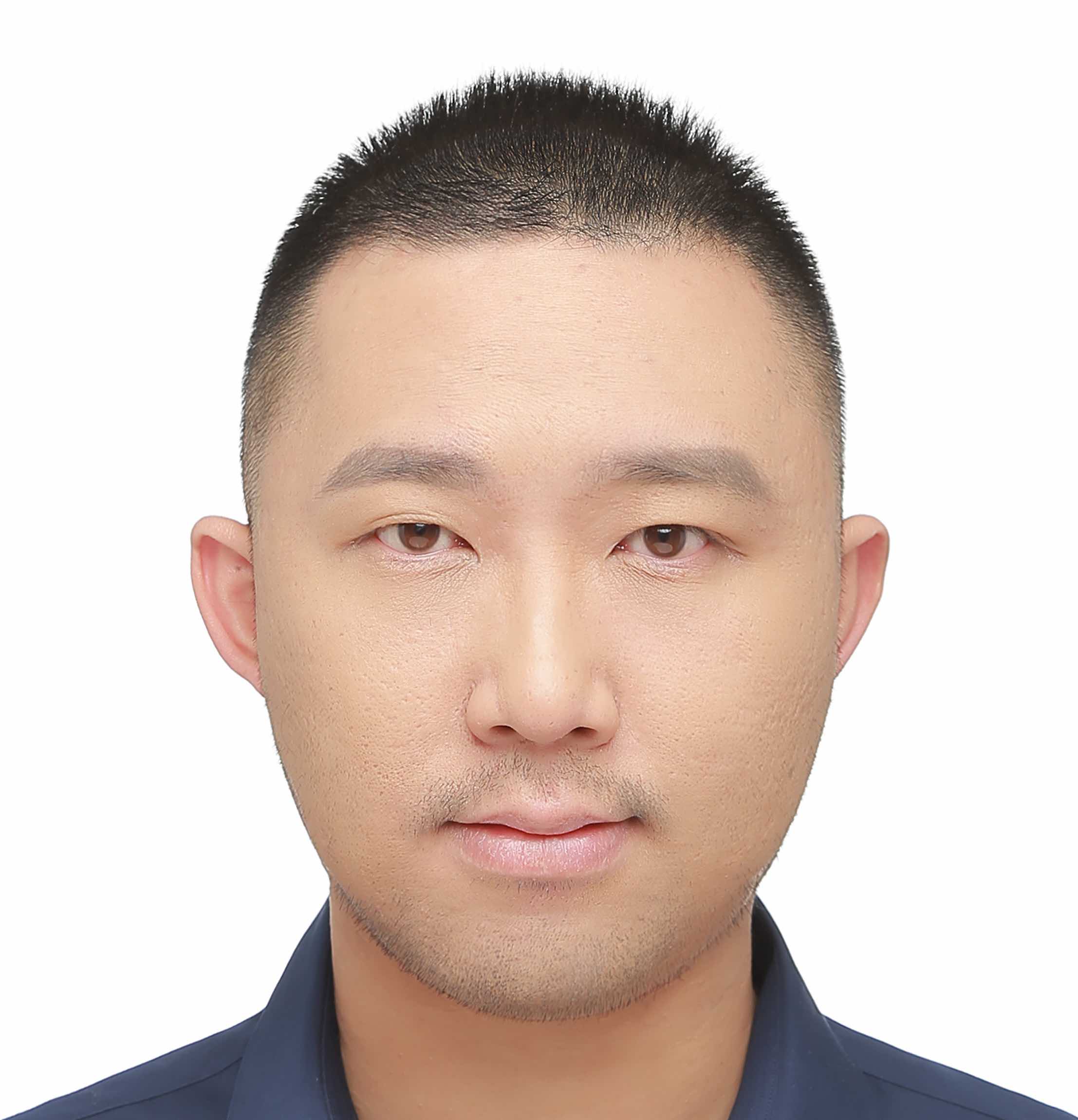
Staff Machine Learning Engineer
TAL Education Group, China
Debate/Panel
Travel Scholarship
Collaborating Organizations
